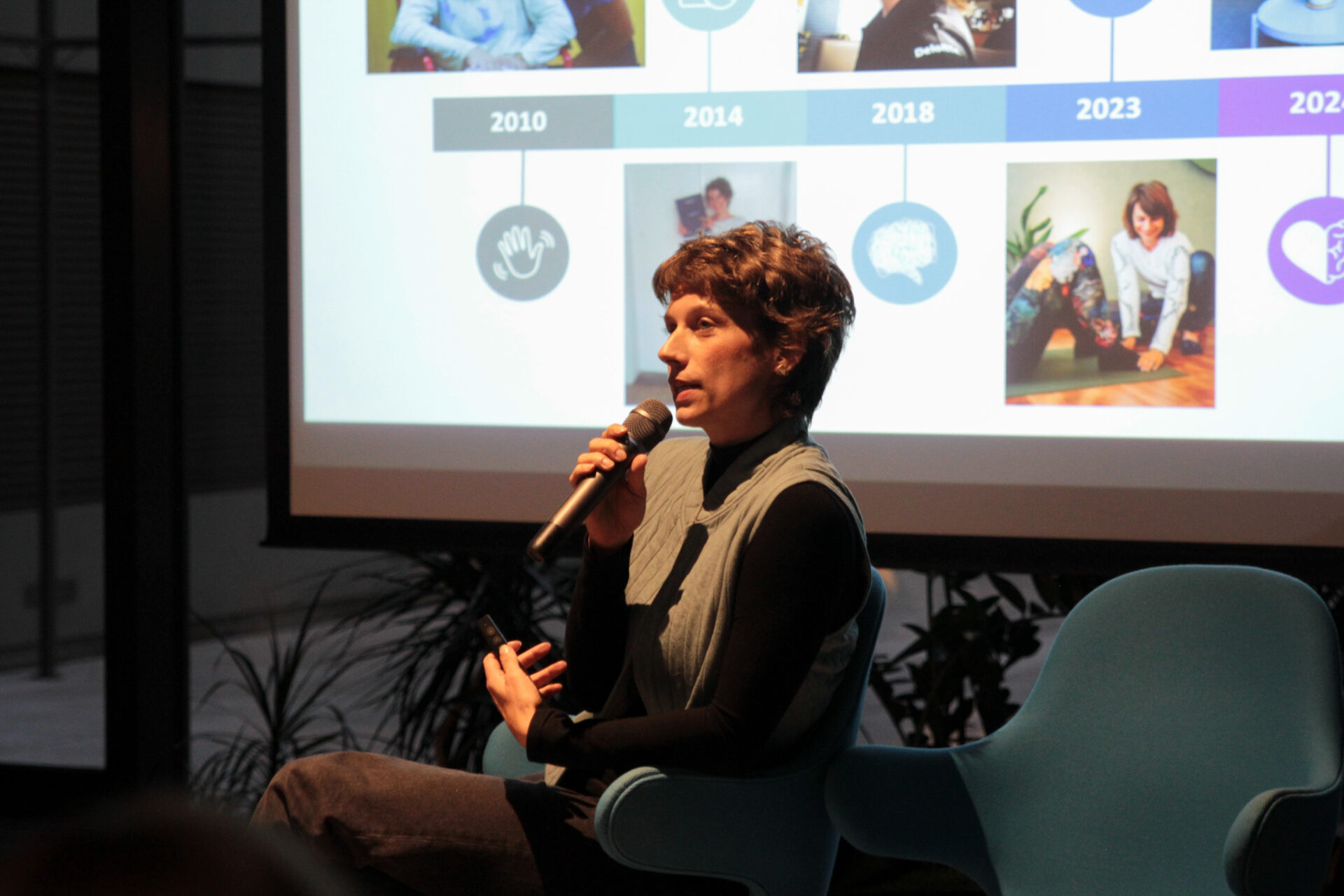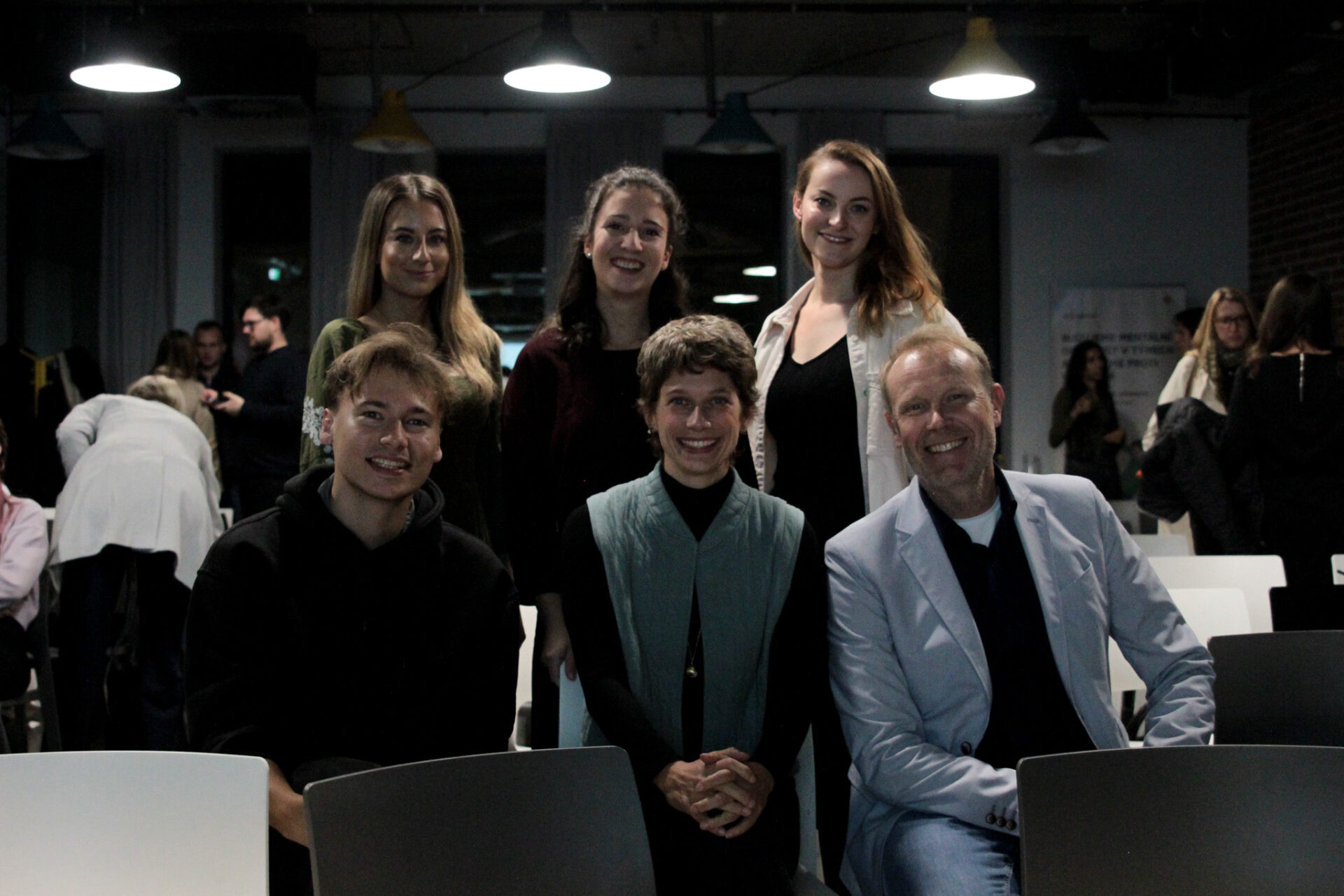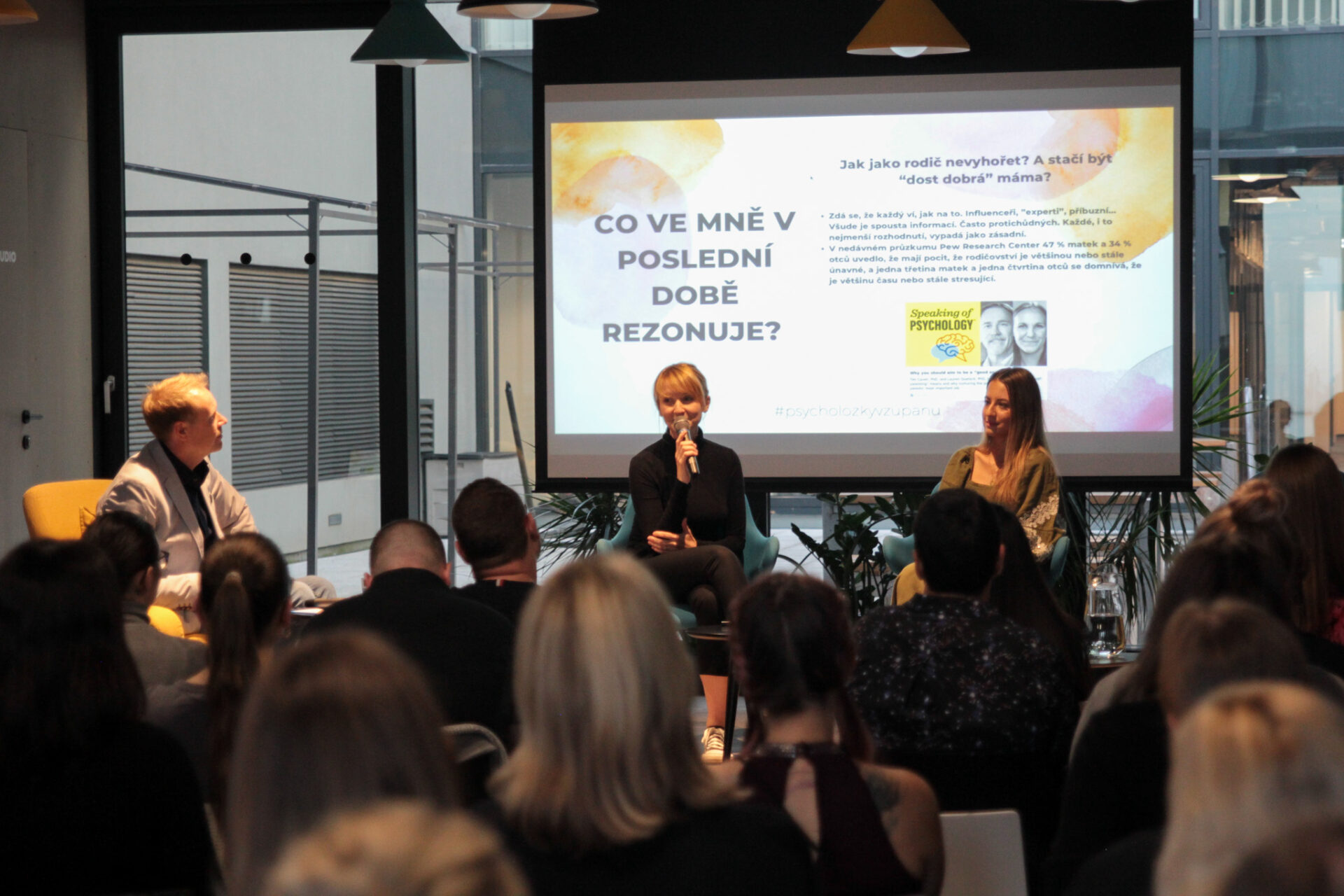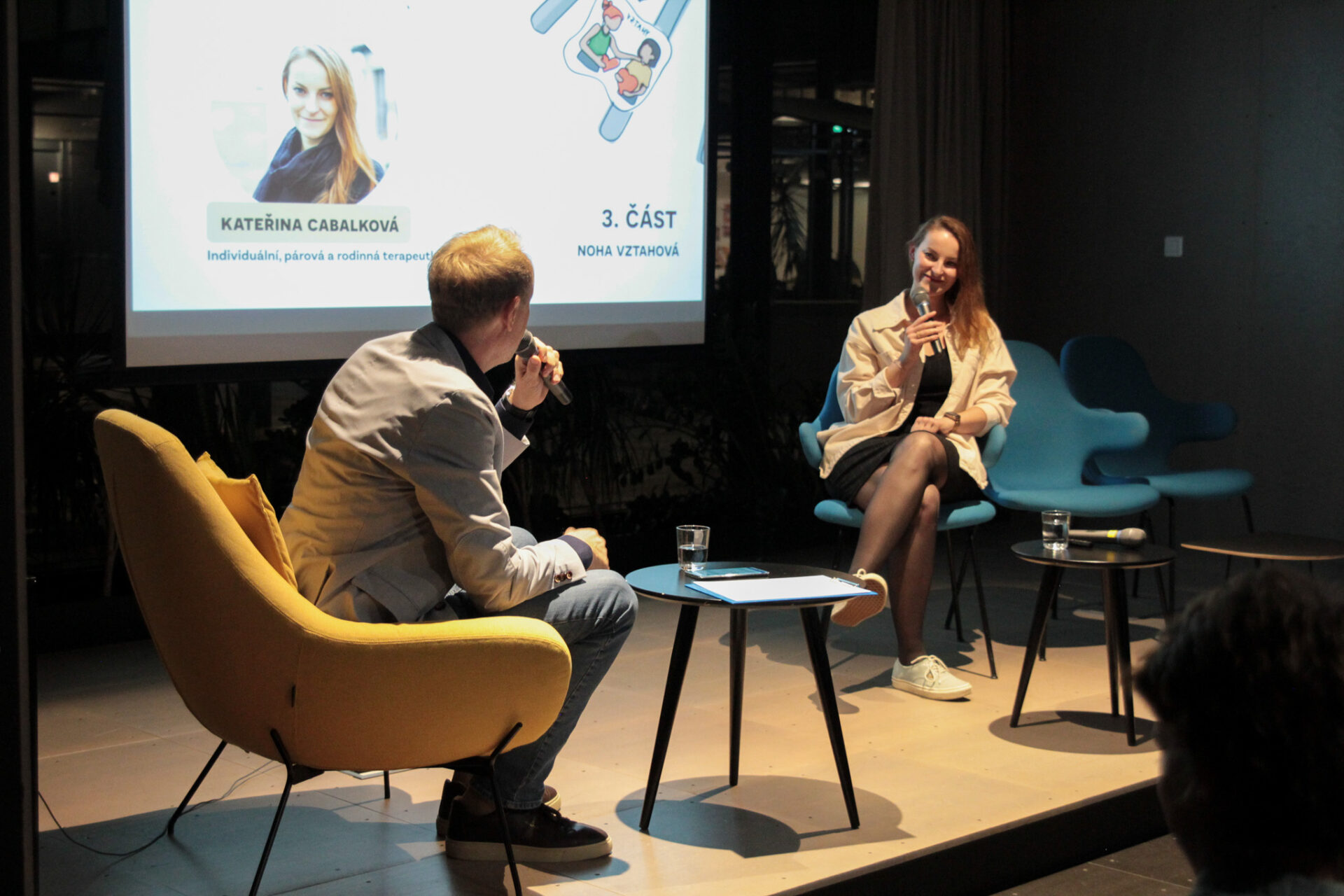Perhaps we all want to find balac in life. To balance our imaginary tripod of mental health and its work, relationship and personal leg. The hosts of the next debate event, Don't Extinguish, talked about how to do that.
For cabinetmakers, the most stable piece of furniture is the tripod. If one leg fails, the stool starts to tilt, and if the other doesn't work, it falls over. We have such three imaginary legs in our lives - professional, relational and personal. And it was the three legs of mental health that were the focus of another event held on October 24 at the WorkLounge. Invitation to a debate moderated by Martin Vasquez, adopted by the "Psychologists in Robes" Tereza Beníčková and Karolína Peruth, Barbora Riedl Černíková and Kateřina Cabalková.
We can burn out at ping-pong
The first to share their experience and advice were Tereza Beníčková and Karolína Peruththat make up the podcast Psychologists in a bathrobe and wrote a book of the same name. In their contribution they focused on the personal leg, which is related to the perception of oneself and one's needs, leisure and hobbies. First and foremost, they recommend including at least short relaxation activities during the day - take a coffee break, walk home from work, listen to a song... So many people don't realize it, but you can burn out even with leisure activities. Karolína also pointed this out: 'We can burn out in so many areas that you slowly burn out in self-development. There is parental burnout, burnout at work and burnout in hobbies."
If you have trouble consciously slowing down, plan your rest into your calendar, create regular rituals. It's important that you find the hobby fulfilling. "If we take them away or stop enjoying them, it's an indicator of burnout. Think about other areas of your life. If a person is having more problems in a relationship, for example, their enjoyment of their hobby will drop," said Caroline, who also noted that it's important to take time to enjoy. "There is research that shows that when we are looking forward to a vacation or planning one, we have very similar experiences of happiness and well-being as when we are directly on vacation."
No work, no cake. But you can't bake them without energy.
The working leg contains all the joys, sorrows and stresses of work. The psychologist and body-psychotherapist talked about what supports its stability and what attacks it Barbora Riedl Černíková. Many clients come to Bara knowing their problem, having answers to their questions, but they are disconnected from their body. In this context, she pointed out that from childhood we gradually learn to perceive ourselves, we disconnect from ourselves. We need to know ourselves and our needs and know how to express them, to be in touch with ourselves but also with other people, and to practice self-regulation - to work with the nervous system and know how to calm down. Bára introduced different calming techniques. It can help to focus on your surroundings and look for ten round objects, for example. Right at the event we grounded ourselves together.
Are you chasing performance? Are you afraid of failing in your career or career choice? "In the long run, it's a working mechanism. Having a great engine will get us into, say, a top university, get us a cool job where we might even get promoted soon. But at some point there's going to be a turning point. It stops working. It's for long-term coaching, more like psychotherapy. Find out whose voice is telling you that you need to be in the job for a long time, where it stems from that this is so important. Ask what will happen and how you will feel if you don't do something." If you're burnt out on work, a change of environment and team can help, of course, but you also need to realign your mindset and relationship to work. "If we don't do anything about it in terms of our behaviour and just change the job, what usually happens is that we burn out again in the next one, and even faster," she concluded her section with this important point.

Faithfulness to your partner and to your needs, values and boundaries
The third speaker was a therapist Kateřina Cabalková z Institute of Modern Lovewith which we looked at how to nurture relationships, how to build them and what pitfalls may lurk in this area. First, she pointed out the importance of mindfulness. Cultivate it (even if it's more challenging these days). Self-awareness, being aware of what your needs, values and boundaries are, is key in nurturing your relationship leg. Be true to them. Another important skill is communicating discomfort. "Most of the time we like to talk about the good stuff, but we have a harder time talking constructively about the uncomfortable stuff. It's a skill - we learn to be vulnerable, to ask for help, to express what's missing in the relationship."
Foster open communication in the relationship and work out issues that arise. You may be familiar with this - it gradually builds up, leading to something (or someone) blowing up or the relationship breaking down completely. Catherine also talked about working with guilt. Sometimes you can feel inadequate, you blame yourself for something. But think about whether the guilt is justified, because usually you are not to blame for how others feel.
Also, have you heard that one must love oneself enough to receive love from others? Kate says that self-love is important, but it would be a shame to deprive yourself of a relationship. "You can grow next to each other."
Thank you again to everyone involved! A big thank you to WorkLounge for providing the space. We look forward to the next time! Don't hesitate to check out the other articles on the blog and to make sure you don't miss out on other events, other news and other inspiring content, stay tuned Don't put out on social media.







